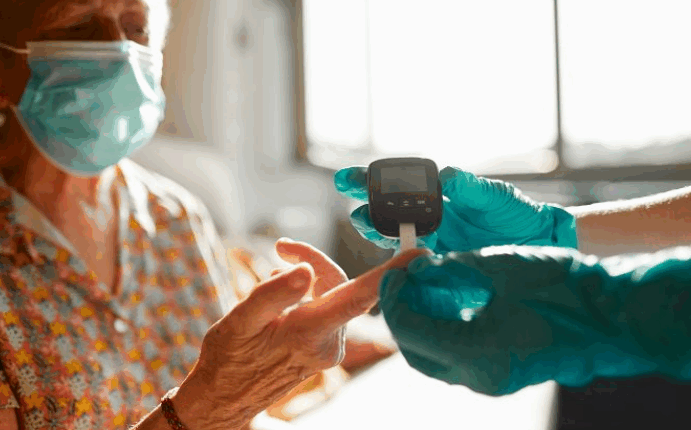Sugar and Blood Pressure Management in Cancer Care: Why It Matters
Introduction
Cancer patients often face multiple health challenges beyond the disease itself. Two of the most critical yet manageable aspects of overall care are blood sugar and blood pressure (BP) levels. Whether due to the cancer itself, side effects of treatment, or existing comorbidities, maintaining stable sugar and BP levels can significantly improve a patient’s quality of life and treatment outcomes.
Why Monitor Blood Sugar and BP in Cancer Patients?
- Chemotherapy and Steroid Side Effects
Many cancer treatments, including chemotherapy and corticosteroids, can raise blood sugar levels and elevate blood pressure. This can lead to complications such as fatigue, infections, delayed healing, or even diabetic episodes. - Impact of Stress and Inactivity
Physical inactivity, poor appetite, or mental stress caused by the diagnosis and treatment can also affect sugar and BP levels. - Pre-existing Conditions
Patients with pre-existing conditions like diabetes or hypertension need extra monitoring, as cancer and its treatments can worsen these conditions.
Managing Blood Sugar in Cancer Patients
- Regular Monitoring:
Check fasting and post-meal blood glucose levels regularly to track changes during treatment. - Balanced Nutrition:
- Opt for low-glycemic index foods like whole grains, legumes, non-starchy vegetables, and lean proteins.
- Limit refined sugar, processed foods, and sugary drinks.
- Eat small, frequent meals to avoid spikes or crashes in blood sugar.
- Medication Adherence:
Ensure proper use of insulin or oral diabetic medications as prescribed by the oncologist and endocrinologist. - Hydration and Physical Activity:
Maintain hydration and engage in light physical activity like walking, as advised by a doctor.
Managing Blood Pressure in Cancer Patients
- Routine BP Checks:
Monitor blood pressure daily at home or during clinical visits to detect any abnormalities early. - Dietary Adjustments:
- Reduce salt intake.
- Incorporate potassium-rich foods like bananas, spinach, and sweet potatoes.
- Avoid processed and canned foods.
- Stress Management:
Practice mindfulness, deep breathing, or meditation to help manage emotional stress that may affect BP levels. - Medication Management:
Take prescribed antihypertensive medications consistently and report any side effects to the healthcare provider.
Collaborative Care is Key
Effective sugar and BP management in cancer care requires a multidisciplinary approach involving oncologists, dietitians, endocrinologists, and nursing staff. Caregivers and patients should be educated on symptoms of high/low sugar or BP (like dizziness, fatigue, sweating, blurred vision, or chest discomfort) to act promptly.
Final Thoughts
Proactively managing blood sugar and blood pressure levels is not just about preventing complications — it’s about supporting the body’s resilience through the demanding journey of cancer treatment. With personalized care, lifestyle adjustments, and close monitoring, patients can enhance their strength and healing potential at every stage of recovery.


